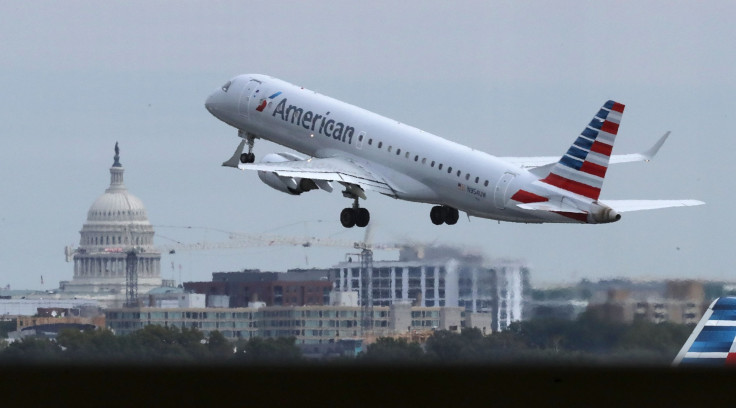American Airlines Makes Emergency Landing Over Mechanical Issue

An American Airlines Boeing 767 made an emergency landing Monday at Norfolk International Airport (ORF) in Norfolk, Virginia, due to the aircraft's mechanical errors. No injuries were sustained by its 192 passengers crew members upon landing.
An electrical odor was detected on the aircraft of Flight 235. This caused the airline crew to plan for an unscheduled stop. The flight was heading to Miami International Airport from John F. Kennedy International Airport.
"The flight diverted due to a mechanical issue," Rob Feinstein, an American Airlines press representative, told International Business Times Tuesday. "The flight landed safely and taxied to the gate. Passengers were accommodated on another aircraft to Miami."
"On Monday, American Airlines flight #235, a Boeing 767 from JFK to Miami, diverted to Norfolk, VA after the pilot reported smelling smoke in the cockpit. The aircraft landed without further incident," a Federal Aviation Administration (FAA) representative told IBT Tuesday.
There was no presence of smoke or fire on the plane despite the smell, said American Airlines spokesperson Katie Cody, according to Nexstar Broadcasting affiliate WAVY-TV.
American Airlines isn't the first carrier to encounter a questionable odor on its aircraft. United Airlines experienced a similar electrical odor issue in July 2014 on a flight heading from Guam from Honolulu. Approximately 335 passengers and 13 airline employees were deserted on a remote Midway Island for seven hours. David Soucie, a former FAA inspector and CNN safety analyst, explained what leads to mechanical incidents like this on CNN's "New Day."
"It's actually ozone," Soucie told the show's hosts. "Extended exposure can be harmful to your lungs, your mouth. It can make you very irritated."
Airline passengers who have experienced ozone's odor have equated it to smoke or burning. These mechanical errors occur by arcing, which is defined as the movement between two electrodes caused by electrical currents in the air. Arcing can also occur in nature through lightning. Failure, like an internal short, within an aircraft's fan could potentially create sparks. This, in turn, would lead to the smoky ozone smell.
Flight delays, like the issue of American Airlines Flight 235, are a common problem passengers may endure. However, airlines can't and don't guarantee flight arrival schedules because unanticipated delays can occur that are out of a carrier's control. This causes airlines to make emergency defers because of mechanical malfunctions or other common complications.
Compensation for customers experiencing extensive delays is not a requirement that airlines have to follow. This, in part, is due to the lack of government regulation.
"Each airline has its own policies about what it will do for delayed passengers waiting at the airport; there are no federal requirements," the U.S. Department of Transportation (USDT) wrote on its website. "Some airlines, often those charging very low fares, do not provide any amenities to stranded passengers. Others may not offer amenities if the delay is caused by bad weather or something else beyond the airline's control."
"Compensation is required by law on domestic trips only when you are 'bumped' from a flight that is oversold. On international itineraries, passengers may be able to recover reimbursement under Article 19 of the Montreal Convention for expenses," USDT added.
© Copyright IBTimes 2025. All rights reserved.





















